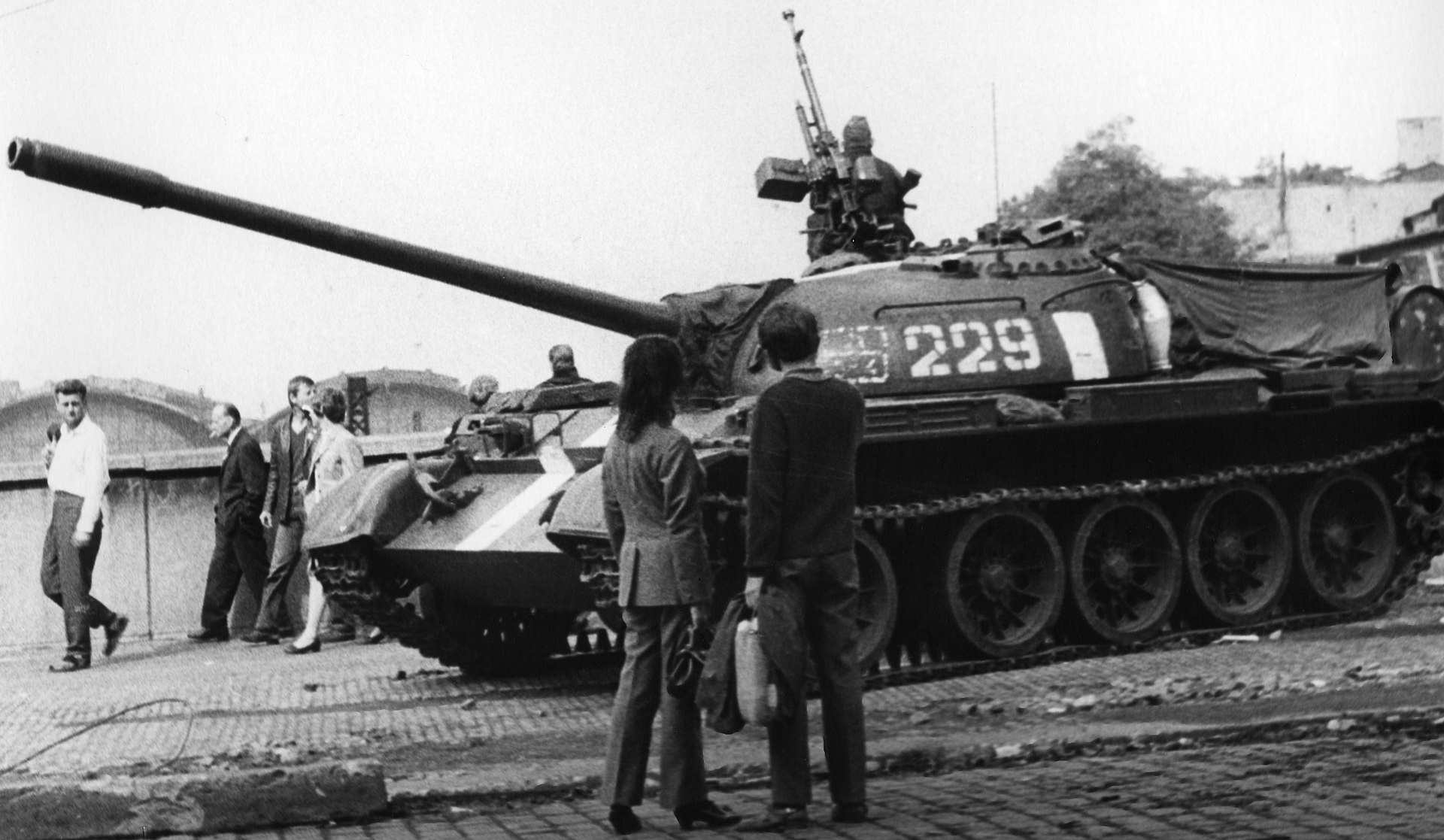On this day in 1968, four Warsaw Pact countries - the Soviet Union, Poland, Bulgaria, and Hungary - invaded Czechoslovakia with ~200,000 troops to stop the "Prague Spring", liberal reforms promoted by the government of Alexander Dubček. Romania and Albania declined to participate in the attack, the latter of which left the Warsaw Pact a month later.
The invasion took place in the context of liberal reforms promoted by the communist government of Alexander Dubček, known as the "Prague Spring". The reforms included a decentralization of administrative authority, loosening of restrictions on the media, speech and travel, and the decision to split into two countries, the Czech and Slovak Republics.
The reforms were not received well by the Soviets, who, after failed negotiations, sent ~200,000 Warsaw Pact troops and tanks to occupy the country. 137 civilians were killed and 500 seriously wounded during the occupation.
Dubček and the Chairman of the National Assembly Josef Smrkovsky were arrested and taken to Moscow. They were allowed to return after adopting the "Moscow Protocol", which effectively reversed the liberalization of the Prague Spring.
The occupation was met with widespread, mostly non-violent resistance. Civilians purposely gave wrong directions to invading soldiers and painted over direction-giving signs. On January 19th, 1969, student Jan Palach set himself on fire in Prague to protest the renewed suppression of free speech. On September 8th, 1968, Polish accountant Ryszard Siwiec immolated himself in Warsaw during a harvest festival in protest of the invasion.
The invasion caused major fractures in communist movements worldwide, both inside and outside the Soviet bloc. Several KGB/GRU defectors and spies such as Oleg Gordievsky, Vasili Mitrokhin, and Dmitri Polyakov cited the 1968 invasion as their motivation for cooperating with the Western Intelligence agencies.
Internationally, the Communist Party of Greece (KKE) suffered a major split over the internal disputes over the Prague Spring, while Albania left the Warsaw Pact following the invasion. The People's Republic of China strongly condemned the military action; on August 23rd, 1968, at the Beijing Romanian Embassy, Chinese Premier Zhou Enlai denounced the Soviet Union for "fascist politics, great power chauvinism, national egoism, and social imperialism".
Meanwhile, the Portuguese Communist Party, the South African Communist Party, and the Communist Party USA all supported the Soviet position.
